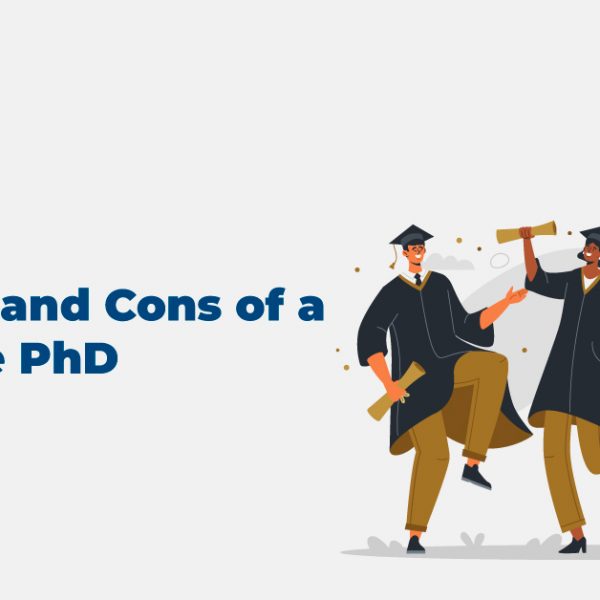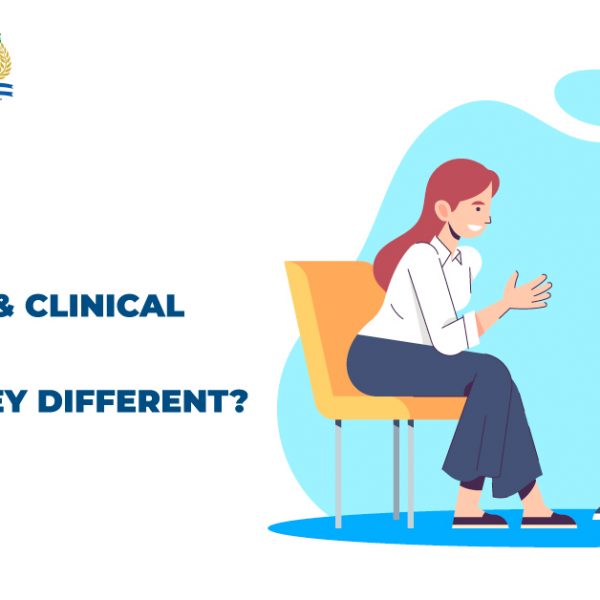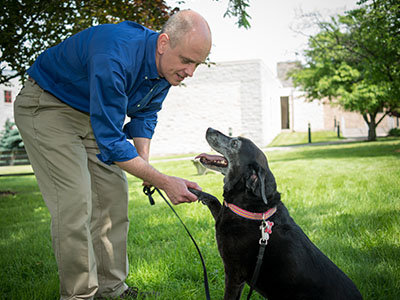

PhD Projects – What is it & how to do one
When researching for your PhD program, you may encounter terms such as PhD projects, thesis, and more. What is a PhD project?
In this post, we explore what a PhD project is, and how is it different from say, PhD thesis and dissertation. We also look at what PhD students do to complete their project.
What Is A PhD Project? What’s The Aim?
Diving into a PhD project is like embarking on a grand academic adventure at a university. It’s not just about getting that coveted title but about pushing the boundaries of knowledge in your chosen field.
The heart of a PhD lies in its project, a rigorous exploration led by you, the doctoral candidate, under the mentorship of seasoned faculty members.
A PhD project is usually documented down as a dissertation, thesis, or other research papers that would contribute to the current body of knowledge.

Imagine working on a project that not only challenges you intellectually but also has the potential to transform how we understand a particular phenomenon.
A PhD in economics might dissect the intricate dance of market forces and policies, providing fresh insights that could inform better decision-making in corporate America or even shape public policy.
The PhD project isn’t a solitary journey. It thrives on diversity, drawing strength from a rich tapestry of backgrounds and perspectives.
Recognising the value of this diversity, initiatives like The PhD Project, founded in 1994, have been pivotal. They aim to:
- increase the representation of minority groups in business schools,
- enriching the academic environment and, by extension,
- the corporate landscape.
Through unique events and a robust support network, including partners like LinkedIn, these initiatives empower doctoral students, providing scholarships and resources to navigate the academic world.
These efforts underscore the importance of bringing historically underrepresented voices into academia.
By fostering a more diverse faculty, universities can inspire and educate the next generation of leaders, ensuring that the classroom reflects the diversity of the workforce and the customer base it serves.
What Do a PhD Student Do In A PhD Project?
When students are in their PhDs, they perform a myriad of tasks. Here are some that they do, as they complete their PhD programme:
In-depth Research
At the core of a PhD project is the pursuit of new knowledge. Students engage in:
- rigorous investigation,
- analyzing data, and
- exploring vast literatures to uncover novel insights in their field.
Whether it’s deciphering historical manuscripts or applying complex mathematical models, this foundational activity is where innovation begins.
Building a broad and diverse network is crucial.
PhD students connect with peers, faculty, and professionals across various platforms like LinkedIn, and at academic conferences.
These connections provide support, foster collaborations, and open doors to opportunities in academia and industry.
Guided by experienced professors, PhD students receive invaluable:
- direction, and
This mentor-mentee relationship is pivotal, offering insights from seasoned academics who’ve navigated similar paths and can share the nuances of academic and professional development.
Academic Writing
Crafting a dissertation is a monumental task that hones a student’s writing prowess. This extensive document encapsulates their research findings and contributions to the field, requiring clear, concise, and compelling communication.
PhD students spend hours learning how to write good academic writing. This is usually achieved by:
- Attending workshops
- Fixing drafts reviewed by more experienced academic
- Reading many research papers.

Presenting at Conferences and Seminars
Sharing research with the academic community is a key aspect of a PhD project. In fact, most PhD programs require their students to present papers.
Students present at conferences, engage in scholarly debates, and receive feedback, enhancing their research and building their reputation.
Many PhD students also take on teaching roles, leading undergraduate or graduate courses. This experience is not just about imparting knowledge but also about inspiring and guiding future generations, honing their own skills in communication and leadership in the process.
PhD Project vs PhD Dissertation
A PhD dissertation is the essence of your doctoral journey, distilled into a single, substantial document. It’s the narrative of your PhD project, a tale of discovery, challenge, and innovation.
In the world of academia, this dissertation is your passport to the realm of scholars. It’s where you present your research findings, meticulously compiled and critically analyzed, to your university and the wider scholarly community.
A PhD project as a voyage across the vast ocean of your field, where you chart unexplored territories and navigate through the complexities of your research question.
The dissertation, in contrast, is the logbook of this journey, capturing every eureka moment and every storm weathered. Faculty mentors, often guide you in weaving this narrative, ensuring your story not only contributes to academia but also enriches the diversity of thought within it.

This is where the potential to inspire the next generation of researchers lies, especially those from historically underrepresented backgrounds, fostering a more inclusive and dynamic academic workforce.
PhD Projects Explained
A PhD project is a comprehensive research endeavour undertaken by doctoral students to contribute new knowledge to their field. Its aim is to develop critical thinking, research skills, and subject-matter expertise, culminating in a dissertation that showcases the student’s findings.
Through this rigorous process, PhD candidates are prepared to become the next generation of scholars, educators, and leaders, capable of addressing complex challenges and advancing their disciplines.

Dr Andrew Stapleton has a Masters and PhD in Chemistry from the UK and Australia. He has many years of research experience and has worked as a Postdoctoral Fellow and Associate at a number of Universities. Although having secured funding for his own research, he left academia to help others with his YouTube channel all about the inner workings of academia and how to make it work for you.
Thank you for visiting Academia Insider.
We are here to help you navigate Academia as painlessly as possible. We are supported by our readers and by visiting you are helping us earn a small amount through ads and affiliate revenue - Thank you!

2024 © Academia Insider

Postgraduate research degrees
Our research is driven by the big picture. The University of Sydney is home to leading researchers who are finding solutions to the world's most pressing issues by changing the way they look at them.
We are home to 90 world‑renowned multidisciplinary research and teaching centres that tackle some of the world’s biggest challenges, such as health, climate change and food security. These centres include the Charles Perkins Centre, the Brain and Mind Centre , The University of Sydney Nano Institute , the Sydney Policy Lab , the Sydney Environment Institute , and the Sydney Southeast Asia Centre .
Our interdisciplinary approach means that students are part of a community of scholars that unites experts in fields as diverse as medicine, arts, social sciences, engineering, information technologies and science.
As a researcher at Sydney, you'll work alongside some of the world's brightest and most accomplished academics. You can access high-calibre facilities and unique international partnerships with top-ranked institutions, including Stanford, UCLA, the University of Edinburgh, Utrecht University, Shanghai Jiao Tong University, and the University of Hong Kong.
Types of research degrees
Master's degree by research.
A master's degree by research at Sydney:
- is the second-highest qualification on the Australian Qualifications Framework
- can be a gateway to study at a PhD level
- is usually one to two years full-time or two to four years part-time*
- is awarded based on a supervised thesis, which makes a substantial contribution to the knowledge of the subject concerned.
*Part-time is not available to international student visa holders.
Doctor of Philosophy (PhD)
A PhD at Sydney:
- is our premier research award and the highest qualification on the Australian Qualifications Framework
- comprises of independent research and writing on an approved topic toward a thesis for examination
- may be undertaken in all faculties and divisions, or across disciplines
- is usually 3.5 years of full-time or seven years of part-time* study.
If you’re interested in a Joint PhD program, you need to follow the Doctor of Philosophy (PhD) application steps 1-3. In addition, your proposed supervisor will need to complete a proposal to negotiate a student agreement form. If accepted, you will also be required to sign an individual student agreement. After your student agreement is finalised, you will then be sent an application form for the Joint PhD program.
Please refer to the University's Dual and Joint Degree Policy for full policy details.
Download our Joint PhD programs factsheet (pdf, 116KB) to learn more.
Professional doctorate
A professional doctorate at Sydney:
- allows candidates to pursue rigorous scholarship alongside advancing their practice in many fields
- is usually three to four years of full-time or six to eight years of part-time* study.
Internship opportunities
Grow professionally and academically through a paid 3-6 month internship with an industry partner as you complete your degree.
The University of Sydney has partnered with Australian Postgraduate Research Intern (APR.Intern) to provide domestic and international HDR students with internship opportunities in a range of sectors and disciplines.
A paid internship will allow you to:
- Develop competencies that will contribute to your research
- Gain industry experience, develop skills and build networks
- Enhance your employability
- Earn additional income
HDR coursework
HDR coursework is mandatory for some of our research degrees. HDR coursework adds to your researcher toolkit so you can graduate with a robust set of skills, for a career in academia or industry.
Your faculty may elect to define certain units of study as mandatory for a given degree, or define any other studies as required by the progress evaluation panel of the research project. Refer to the relevant course in the handbook .
Frequently asked questions
Getting started, do i need prior research experience.
Yes, all HDR courses require prior research experience. This is because HDR courses are largely self-driven, requiring pre-requisite research, time and project management skills.
If I have no prior research experience how can I get started?
If you do not have any previous research experience, there are ways to gain what you need. Both the one-year honours and masters by coursework degrees containing substantial research components are great pathways into research. These courses will allow you to gain the research skills necessary to apply for the PhD.
What is the difference between a Master of Philosophy/Research and a PhD?
The PhD is our premier research award and the highest qualification on the Australian Qualifications Framework. The PhD is usually three years full-time or six years part-time.
The Master of Philosophy/Research is usually one to two years full-time or four years part-time (part-time is available to domestic students only). A PhD thesis is generally around 80,000 words while a master’s thesis is 50,000 words.
How do I find a supervisor?
To browse through the profiles of our researchers and learn about their current and past research, please refer to Find a Researcher . Here, you will also be able to access the publications lists and contact details of our researchers.
My research idea crosses two disciplines – is this a problem?
No. Interdisciplinary research is highly regarded in the world of academia and working across disciplines can be very beneficial in developing and demonstrating different analytical skills. Working on research from two perspectives can also offer insight that you would not be able to achieve from one discipline perspective.
What are the English language requirements for a PhD?
Please check your course page for the requirements of each course. Generally, the English requirements are between 6.0 to 7.0 IELTS overall or equivalent in other accepted English proficiency tests.
How much do HDR courses cost?
There are no course fees for domestic students – fees are covered by the government Research Training Program (RTP) fee offset. However, fees apply to international students. Please refer to the course page for fee details.
What scholarships are available?
We have one of the largest research schemes in Australia. Opportunities include the Australian government-funded Research Training Program (RTP) stipend scholarships, and the University of Sydney and faculty-specific awards. Explore your options .
Degree progression
Do i have to undertake hdr coursework.
It depends on your degree. Your faculty may define certain units of study as mandatory for a given degree. Where this is not the case, you may still have the opportunity to complete units of study that you find useful to support your learning and research.
Can I transfer from the Master of Philosophy into a PhD?
It is possible for students to move to the PhD after the first year of study, if you have made satisfactory progress and if the transfer is approved by your Faculty. It is important to inform your supervisor of your plans early so that you can work on a timeline together to achieve this goal.
Support during your studies
Am i able to work while studying my hdr course full-time.
Yes, you can work during your PhD. How many hours you take on is at your own discretion, and you must ensure that you still allow time for the completion of your research. International HDR students can generally work more hours than coursework students. Please check your individual visa for specific restrictions.
Will the university employ me during my PhD?
There are sometimes opportunities for PhD candidates to engage in paid employment at the University, but this is not guaranteed and is dependent on the Faculty/Department. If opportunities do arise, they may be in the form of teaching, marking, acting as a research assistant, or other roles.
What support services are available to research students?
There is extensive support for research students at Sydney, including 100+ multidisciplinary research and teaching centres.
Other services:
- Library workshops for research skills
- Academic Liasion Librarians
- Research Support Officers
- Careers Centre
- Sydney University Postgraduate Representative Association (SUPRA)
- Learning Hub
How to apply
Find a supervisor.
Search by keyword, location, topic or supervisor name
- 1800 SYD UNI ( 1800 793 864 )
- or +61 2 8627 1444
Student Centre, Level 3 Jane Foss Russell Building, Darlington Campus
Opening hours: 9am to 5pm, Monday to Friday
Prospective students
Facts & figures
Research at Sydney
- Top 20 Ranked one of the world's top universities*
- 100% of our research is ranked at world standard and above by the Australian Research Council
- 100+ multidisciplinary research and teaching centres
- * QS World University Rankings 2024
Research scholarships
Find the right scholarship for you
How to write a research proposal
A guide to preparing a strong research proposal
6 ways to finance your postgraduate study
Find out how to reduce the cost of your tuition fees

Unraveling the Mysteries of PhD Project Topics Selection

Blog Summary
A PhD requires distinct skill sets from a master’s and a bachelor’s. The biggest obstacle for PhD candidates is choosing a project subject or problem statement. This blog article aims to inform readers about how to select and complete their PhD projects. Your inner motivation and areas of interest should be the top considerations while selecting your specialization. Never start a PhD program without getting clarification on the research labs you should choose. For application alerts, while enrolled in your master’s program, register with PhD Portals. Select an interest-provoking subject, then read everything there is to know about it. A successful thesis requires adhering to the “Write, Rewrite, and Write” cycle.
Tips to Write your PhD Thesis
Start your journey to obtaining a phd.
Pursuing a PhD, unlike your master’s or bachelor’s program, demands altogether different skill sets. You have a fixed set of subjects with some open elective and core-elective to study in those programs. But in a PhD program , you are aware of your stream of study like computer science, management, finance, humanities, etc.
But the PhD project topics on which you carry out research are wide open. You are supposed to narrow down to a particular thesis topic idea or field of study. Selecting a PhD project topic or problem statement is the biggest challenge for PhD students. This blog post attempts to educate scholars on selecting a PhD project of their choice and completing it.
How Do I Choose a PhD Project?
Choosing a PhD project topic is the primary work in pursuing a PhD program. It is not like choosing an undergraduate or postgraduate program. It demands patience. So, take your time.
Next, you should be in a position to decide what type of PhD project you want to pursue. Broadly there are three types of PhD projects:
- Advertised PhD projects
- Self-proposed PhD projects
- Professional Doctorates
The Advertised Projects are common in Science, Technology, Engineering, and Medicine (STEM) . Research groups and Well-established laboratories offer these programs.
The Self-proposed projects are common in the Humanities and Arts arena. Here, you are free to choose a thesis topic as long as it falls in the purview of a research topic.
Professional Doctorates in vocational subjects like Business and Management awarded to practitioners are not academic qualifications.
What Makes a good PhD Project?
A PhD project should, first of all, have a clear goal. So, it starts with a proposal. A PhD proposal is a clear and concise document illustrating the problem statement and the goals of your work. It should also highlight why it is worth pursuing?
A typical PhD project involves Five steps:
- Identifying a problem statement
- Carrying out a comprehensive literature review
- Conducting Original Research and finding out results
- Producing a Thesis that documents your results
- Writing the thesis and taking up Viva-Voce
Tips for choosing a PhD project and topics
Here you have two sets of Tips:
- Tips to Apply for a PhD project and choosing a PhD project topic
Tips to Apply for a PhD project
1. Be Aware of Your Niche
Just because you are a computer science postgraduate and AI or Data Science is the trend; You needn’t select these areas. What matters is your interest and inner drive that should be the priority in choosing your niche.
2. Your Comfort Level to Relocate to Another City
Once you have identified your niche and the University/Research Labs, you may have to relocate to a new city. Make up your mind to relocate and also be decisive in making your choice.
3. Identify the Departments and Research Labs Succinctly
You are supposed to conduct a lot of research before boiling it down to a particular Department or University. This is a necessity as it is crucial to identify your core interests and ideas.
4. Obtain Clarity from Your Research Supervisor
Never dive into a PhD program without seeking clarity about the Research labs you are supposed to join. If it is a funded project, get clarification about all facts that are not obvious. Have one to one discussion with your Research Supervisor over Skype or any messenger to seek clarity regarding questions like,
- How many people work in the lab?
- What are their designations?
- Are you supposed to collaborate with any of them?
5. Register with PhD Portals to Get Application Alerts
During your Master’s Program, register with online portals that provide information on PhD programs offered by various Labs and Universities. This helps you to be informed about itineraries of multiple institutes.
6. Seek Seniors and Teachers Help
Ignorance is the biggest culprit that sinks your career ship. Regardless of how small your doubt is, get it clarified from your professors and seniors. Discuss issues like how to formulate an email, cover letter, resume, and other application procedures.
7. Understand the Team Well
It is not only the project that should create enthusiasm; it is also the team you will be working with. The team is vital to complete a project. Before diving into a project, try to understand whether you can get along with your teammates.
8. Different Types of Funding Exists
When you apply for funded projects, you often come across various types. Some are not funded, while some are competition-funded also. Your enthusiasm for getting into the project plays a vital role in the supervisors picking you in competitive funding. So, Love your work to the core.
9. Always Apply for More than One University/Institute
Prepare as many applications as possible and shoot them to different institutes. This process provides a wide array of experience in how to draft an application and approach the institutes. Such skills will help you in the long term.
10. Failure is the Stepping Stone to Success
You might fail once or twice in getting shortlisted or fail to perform in the interview. The number of interviews you have faced will help nurture your interpersonal skills.
Below are the general tips any PhD scholar should follow to be successful.
- While choosing a PhD project topic most crucial parameter is to rely on a topic that is interesting for you.
- Thoroughly read everything about the topic.
- Find a theoretical basis to support your idea.
- Be prepared to shift gears as the research progresses and your presumptions about the outcomes change.
- Be open to taking inputs from others to fine-tune your views.
- Formulate a committee of researchers,
- Be diligent in gathering data.
- The Panache for Effective Thesis Writing is Follow ing the “Write, Rewrite, and Write” Cycle. It doesn’t matter if your writing is good or bad; take tips from professional writers online. Most importantly, Good writing is all about Editing again and again. So, never feel daunted by Thesis writing; enjoy every bit of it.
- Sit with your Research Supervisor and prepare well-structured content with a Table of Content adequately defined. Regardless of being an expert writer or novice, your first draft always needs tweaking. Never be disheartened by re-editing work patience is key here.
- Thesis Writing needn’t be boring and monotony work. Bring in flair to your writing by inserting adjectives, says, expert writers.
- A chronologically written thesis is a misconception. As soon as you complete a piece of experiment or research, document it neatly when it is fresh in your mind. Later it can be integrated into the Final Thesis as per the Table of Contents.
- Once you research and write a chapter, take a break and come back with a critical perspective to discover possible mistakes. This always helps. Do not write in a marathon-style take breaks.
- Plagiarism is the biggest enemy of any research document. Whenever you quote an existing work, paraphrase properly and provide references and citations.
- All universities have their Templates and Preferred Style of References . Religiously stick to the guidelines given by your university.
- Follow the same house style of spellings does not club “-ize” with “-ise” styles. If you prefer to use “improvize,” use it in all places, do not mix up with “improvise.”
- While quoting from other sources, ensure that you do not make spelling mistakes. Copy the quotes exactly.
- Your thesis is the window to showcase both your professionalism and research abilities to the outer world. Work with diligence and give it a professional appeal.
Why TSL-UCN?
Taksha Smartlabz in association with the University of Central Nicaragua (TSL-UCN) provides various PhD programs with an advanced blended learning system that is designed with working professionals in mind. It provides the opportunity to study from anywhere and at any time.
Taking up a PhD project involves various steps. Initially, you have to identify the domain of your interest and apply for a university or research lab. On getting selected, get involved in the meticulous work of carrying out research, documenting your findings, publishing papers, coming up with thesis work, and defending your work in research gathering.
The process of selecting your PhD project is the most crucial step in the entire process. Understanding whether you are looking out for Advertised/Self Proposed PhD projects or Professional Doctorates is vital in the initial stages.
Enroll now, to reap the benefits of this program, and obtain a PhD in your niche.


Subscribe For Newsletter
Select Category School of Public Health and Social Work School of Business Management and Public Administration School of Research School of Nursing
Select Program Ph.D in Public Health Master of Public Health Doctor of Public Health Administration Fellowship in Surgery Fellowship in Paediatrics and Child Health Fellowship in Clinical Cardiology with Critical care -->
Ph.D in Management Doctor of Business Administration
Ph.D in Clinical Research
Ph.D in Nursing

Is an Executive Master of Business Administartion Right for You? Find Out!

Social Workers Who Earn the Most: Top Specializations

The Ultimate Career Advancement: Value of an Online EMBA

A Testimonial of Texila’s PhD in Social Work Experience

MPA or MBA: Making the Right Decision for Your Career
Related posts.

The Pros and Cons of a Part-time PhD

Jump-Start Your Educational Career with a PhD in Education

Mental Health Matters: A Clinical Approach

A Doctorate Degree: What It Is & How to Obtain One

Counseling Psychology and Its Role in Managing Stress in Older Adults

Counseling vs Clinical Psychology: Unraveling the Key Differences
- More Networks

Funding for biomedical research and innovation
Phd studentships and doctoral fellowships.
A PhD is a postgraduate research degree, usually lasting three or four years, if undertaken full time. It involves independently conducting original and significant research in a specific field and is normally assessed by a written thesis and oral examination.
Funding options available
Alzheimer’s Research UK: PhD scholarships Funding to undertake a PhD involving biomedical research in Alzheimer’s disease and other dementias. Applications are made by the prospective supervisor. Funding: Stipend plus tuition fees and research/travel costs Duration: 36 months
Alzheimer’s Society: PhD studentships Funding to undertake a PhD involving biomedical research in Alzheimer’s disease and other dementias. Applications are made by the prospective supervisor. Funding: Up to £85,000 (£91,000 for London) Duration: Three years
British Heart Foundation: Non-clinical PhD studentships Funding to undertake a PhD in cardiovascular science. Applications are made by the prospective supervisor. Funding: Stipend, tuition fees, consumables Duration: Three years
British Heart Foundation: Four-year PhD programme Funding for research organisations to provide a PhD studentship programme in cardiovascular research. Career stage: Prospective students should apply to individual research institutions Funding: Student stipend, tuition fees, research consumables Duration: Four years
MRC: Studentships Find out more about how MRC funds and supports PhD students at universities and MRC units, institutes and centres.
National Centre for the Replacement Refinement & Reduction of Animals in Research: PhD studentships Funding to undertake a PhD studentship relevant to any area of medical, biological or veterinary research which supports the development and application of the 3Rs. Funding: Cash-limited award of £30,000 pa (£90,000 total over three years) Duration: 36 months
National Institute for Health Research: Doctoral fellowships Funding to undertake a PhD in an area of NIHR research. Funding: Fully funded including current salary Duration: 36 months with p/t options
Last updated: 6 July 2022
This is the website for UKRI: our seven research councils, Research England and Innovate UK. Let us know if you have feedback or would like to help improve our online products and services .

How to write a PhD thesis: a step-by-step guide
A draft isn’t a perfect, finished product; it is your opportunity to start getting words down on paper, writes Kelly Louise Preece
Kelly Louise Preece

Created in partnership with

You may also like

Popular resources
.css-1txxx8u{overflow:hidden;max-height:81px;text-indent:0px;} How to develop a researcher mindset as a PhD student
Formative, summative or diagnostic assessment a guide, emotions and learning: what role do emotions play in how and why students learn, how to assess and enhance students’ ai literacy, how hard can it be testing ai detection tools.
Congratulations; you’ve finished your research! Time to write your PhD thesis. This resource will take you through an eight-step plan for drafting your chapters and your thesis as a whole.

Organise your material
Before you start, it’s important to get organised. Take a step back and look at the data you have, then reorganise your research. Which parts of it are central to your thesis and which bits need putting to one side? Label and organise everything using logical folders – make it easy for yourself! Academic and blogger Pat Thomson calls this “Clean up to get clearer” . Thomson suggests these questions to ask yourself before you start writing:
- What data do you have? You might find it useful to write out a list of types of data (your supervisor will find this list useful too.) This list is also an audit document that can go in your thesis. Do you have any for the “cutting room floor”? Take a deep breath and put it in a separate non-thesis file. You can easily retrieve it if it turns out you need it.
- What do you have already written? What chunks of material have you written so far that could form the basis of pieces of the thesis text? They will most likely need to be revised but they are useful starting points. Do you have any holding text? That is material you already know has to be rewritten but contains information that will be the basis of a new piece of text.
- What have you read and what do you still need to read? Are there new texts that you need to consult now after your analysis? What readings can you now put to one side, knowing that they aren’t useful for this thesis – although they might be useful at another time?
- What goes with what? Can you create chunks or themes of materials that are going to form the basis of some chunks of your text, perhaps even chapters?
Once you have assessed and sorted what you have collected and generated you will be in much better shape to approach the big task of composing the dissertation.
Decide on a key message
A key message is a summary of new information communicated in your thesis. You should have started to map this out already in the section on argument and contribution – an overarching argument with building blocks that you will flesh out in individual chapters.
You have already mapped your argument visually, now you need to begin writing it in prose. Following another of Pat Thomson’s exercises, write a “tiny text” thesis abstract. This doesn’t have to be elegant, or indeed the finished product, but it will help you articulate the argument you want your thesis to make. You create a tiny text using a five-paragraph structure:
- The first sentence addresses the broad context. This locates the study in a policy, practice or research field.
- The second sentence establishes a problem related to the broad context you have set out. It often starts with “But”, “Yet” or “However”.
- The third sentence says what specific research has been done. This often starts with “This research” or “I report…”
- The fourth sentence reports the results. Don’t try to be too tricky here, just start with something like: “This study shows,” or “Analysis of the data suggests that…”
- The fifth and final sentence addresses the “So What?” question and makes clear the claim to contribution.
Here’s an example that Thomson provides:
Secondary school arts are in trouble, as the fall in enrolments in arts subjects dramatically attests. However, there is patchy evidence about the benefits of studying arts subjects at school and this makes it hard to argue why the drop in arts enrolments matters. This thesis reports on research which attempts to provide some answers to this problem – a longitudinal study which followed two groups of senior secondary students, one group enrolled in arts subjects and the other not, for three years. The results of the study demonstrate the benefits of young people’s engagement in arts activities, both in and out of school, as well as the connections between the two. The study not only adds to what is known about the benefits of both formal and informal arts education but also provides robust evidence for policymakers and practitioners arguing for the benefits of the arts. You can find out more about tiny texts and thesis abstracts on Thomson’s blog.
- Writing tips for higher education professionals
- Resource collection on academic writing
- What is your academic writing temperament?
Write a plan
You might not be a planner when it comes to writing. You might prefer to sit, type and think through ideas as you go. That’s OK. Everybody works differently. But one of the benefits of planning your writing is that your plan can help you when you get stuck. It can help with writer’s block (more on this shortly!) but also maintain clarity of intention and purpose in your writing.
You can do this by creating a thesis skeleton or storyboard , planning the order of your chapters, thinking of potential titles (which may change at a later stage), noting down what each chapter/section will cover and considering how many words you will dedicate to each chapter (make sure the total doesn’t exceed the maximum word limit allowed).
Use your plan to help prompt your writing when you get stuck and to develop clarity in your writing.
Some starting points include:
- This chapter will argue that…
- This section illustrates that…
- This paragraph provides evidence that…
Of course, we wish it werethat easy. But you need to approach your first draft as exactly that: a draft. It isn’t a perfect, finished product; it is your opportunity to start getting words down on paper. Start with whichever chapter you feel you want to write first; you don’t necessarily have to write the introduction first. Depending on your research, you may find it easier to begin with your empirical/data chapters.
Vitae advocates for the “three draft approach” to help with this and to stop you from focusing on finding exactly the right word or transition as part of your first draft.

This resource originally appeared on Researcher Development .
Kelly Louse Preece is head of educator development at the University of Exeter.
If you would like advice and insight from academics and university staff delivered direct to your inbox each week, sign up for the Campus newsletter .
How to develop a researcher mindset as a PhD student
A diy guide to starting your own journal, contextual learning: linking learning to the real world, what does a university faculty senate do, hybrid learning through podcasts: a practical approach, how exactly does research get funded.
Register for free
and unlock a host of features on the THE site
Phone Numbers
Routine and emergency care.
Companion Animal Hospital in Ithaca, NY for cats, dogs, exotics, and wildlife
Equine and Nemo Farm Animal Hospitals in Ithaca, NY for horses and farm animals
Cornell Ruffian Equine Specialists, on Long Island for every horse
Ambulatory and Production Medicine for service on farms within 30 miles of Ithaca, NY
Animal Health Diagnostic Center New York State Veterinary Diagnostic Laboratory
General Information
Cornell University College of Veterinary Medicine Ithaca, New York 14853-6401

Baker Institute for Animal Health
Dedicated to the study of veterinary infectious diseases, immunology, cancer, reproduction, genomics and epigenomics, meet our faculty, alexander j. travis, vmd, phd.

Department of Biomedical Sciences
Professor of reproductive biology, director, cornell university master of public health program, department of public and ecosystem health, department chair.
Baker Institute for Animal Health
Academic Profile
Office: 607.256.5613 Lab: 607.256.5622 Fax: 607.256.5608 Email: [email protected]
Dr. Travis's Work
Studies of reproduction, wildlife, and public health to create healthier animals and humans
Dr. Alex Travis’s research explores a diverse set of subjects related to One Health, which is interdisciplinary work that links the health and wellbeing of people, animals, and the environment. His interests include animal and human health and fertility as well as efforts to help alleviate poverty and hunger in developing countries, work that indirectly benefits local wildlife. Dr. Travis serves as Director of Cornell’s new Master of Public Health program .
- Male infertility, assisted reproduction . Poor sperm function is a common cause of infertility in animals and humans alike, but there are currently few easy and accurate tests for diagnosing the problems involved. Building on his expertise in sperm biology, Dr. Travis and his team have developed a male fertility test that scores the likelihood that a man’s sperm will be able to successfully fertilize an egg. For humans, this result can help doctors inform couples seeking to have a child about the pathway to pregnancy that can serve them best.
New test offers clarity for couples struggling to conceive
- Puppies born by in vitro fertilization help dogs, wildlife . Dr. Travis and his colleagues and students welcomed the first puppies born by in vitro fertilization on July 10, 2015 at the Baker Institute. The births are the first time this assisted reproduction technique, in which ova and sperm are brought together in a test tube to create embryos, has been successfully accomplished in a dog. This advancement could provide new strategies for preventing human and canine genetic diseases. To assist wildlife conservation efforts, the techniques are now being applied to help endangered canid species reproduce in captivity.
- Rapid diagnosis of stroke, other disorders. Minutes count when treating stroke or other brain injuries, but current diagnostics take as long as three hours – during which time patients may be suffering from irreversible brain damage. Copying a molecular design they discovered in the sperm tail, Travis and his colleagues, including Baker Institute assistant research professor Dr. Roy Cohen , have developed a device that can diagnose stroke in less than ten minutes using less than a drop of blood. Having demonstrated proof of principle, Travis and Cohen are now expanding the technology to diagnose other conditions in humans and animals, including traumatic brain injury (concussion), some forms of dementia, and even some types of cancer and heart disease.
- Getting sperm tail enzymes to do important work. Sperm are interesting because of their role in reproduction, but the Travis lab is also putting components of the long sperm tail to work for other purposes. Building on their past studies of sperm’s energy-making enzymes, Dr. Travis and his colleagues have mimicked the way these enzymes are organized in the tail, called a “flagellum”, to create enzyme machines powered by sugar. If the work can be enhanced to be a net producer of energy, these molecular engines could enable a number of practical applications in nanobiotechnology. For example, these tiny powerhouses could be integrated into implanted hybrid biological/mechanical medical devices, which would diagnose or treat disease, fueled by the sugars available in a patient's bloodstream.
Dr. Travis’s Current Projects:
- Nanobiotechnology: tethering enzymes to make energy and diagnose disease
- Cell biology of reproduction and membranes
- Development of new technologies of assisted reproduction
- Conserving wildlife by fighting poverty and hunger
Additional Resources:
- If you would like a copy of Dr. Travis' CV please email Jamie Weber
- Travis Lab Website

Connect with the Baker Institute on Twitter and Facebook:

- DBA vs PhD – Differences Explained
- Types of Doctorates
Is a DBA and PhD Equivalent?
A Doctor of Business Administration (DBA) is equivalent to a Doctor of Philosophy (PhD); however, there are fundamental differences between these two doctoral degrees. These differences are nearly always at the centre of DBA vs PhD discussions, and they stem from the intended career path of the student following their degree.
A PhD focuses on the ‘ theory ’ underpinning business management, whereas a DBA focuses on the ‘ practical ’ concepts. Those who complete a PhD in business management usually do so as they wish to pursue a career in research or academia. Those who complete a DBA do so as they want to pursue a more advanced role in the business industry or within their organisation.
What Is a PhD?
A PhD is a doctorate degree and is the highest postgraduate qualification awarded by universities. It involves undertaking original research in a narrow subject field and typically takes 4 years to complete.
A PhD in Business Administration provides an individual with a specialised and research-based background for a topic in the business management field. This is one of the key reasons it’s sought after by those who wish to work in business-related academia or research.
What Is a DBA?
A Doctor of Business Administration (DBA) is a business-orientated professional doctorate. Like a PhD, it is the highest-level postgraduate qualification which you can obtain from a university.
The degree programme focuses on providing practical and innovative business management knowledge which can apply to any workplace. DBAs are designed for experienced practitioners such as senior managers, consultants and entrepreneurs who want to further their practical abilities.
This form of doctorate was first introduced as a way of allowing a distinction to be made between experienced practitioners and expert practitioners. The doctorate is an equal alternative to a traditional PhD and is an advanced follow-up for a Master’s in Business Administration ( MBA ).
Research Scope
A noticeable difference between a PhD and a DBA is the research topic. A PhD candidate selects a research project of theoretical value to the academic environment. A DBA candidate selects a research project which has a practical application to the business environment.
This means that while the research topic for a PhD will centre around a gap in knowledge of existing theories, the topic for a DBA will usually focus on developing a new theory or innovatively improving an existing one.
DBA students typically choose research topics based on real-life scenarios they are facing or have faced. This is contrary to a PhD student where their research topic usually centres around a topic they don’t have first-hand experience in.
Programme Structure

A PhD usually takes 4 years to complete while a DBA degree takes between 4 – 7 years to complete, with most students requiring 6 years.
Due to DBA students being working professionals, nearly all DBA degree programmes are part-time courses carried out under a ‘distant learning’ arrangement. This is opposite to PhD programmes where most are offered as full-time projects which require extensive amounts of physical presence on the university’s campus.
Another difference in the programme between PhDs and DBAs is that PhDs have no taught components, while DBAs have a significant number of taught components .
Due to these taught components, DBA programmes are split into two sections . The first section is 2 years long and covers the taught elements of the degree and involves completing coursework. A wide range of specialist business management topics are covered, such as market theory , resource partitioning , and organisational development . These first two years provide you with advanced business knowledge and develop your research and analytical skills to prepare for your individual research project. The remaining 2 to 5 years is for you to undertake your individual research project; this is the second section.
As part of your research project, you will have to produce a thesis . The thesis will outline your methods and results and include a discussion of your research findings. Although the word count will vary for each university, most use an upper word count of around 60,000 words. Besides this, you will also need to defend your work during an oral examination known as a ‘ viva voce ’.
During your degree, you’ll likely have several opportunities to present your research at conferences, universities and related organisations.
Tuition Fees
To fairly represent the two sections of DBA programmes, universities usually adopt two sets of annual tuition fees. These fees vary widely between universities:
- The first set covers the first two years of the programme and is typically between £13,000 – £30,000 per year.
- The second set of annual tuition fee covers the remaining years and generally is between £4,000 – £9,000 per year.
The reason for this difference in fee is that the first two years will heavily utilise the university’s resources and a professor’s time to deliver the taught modules.
In contrast, the average cost of a full-time PhD is fixed throughout its full duration and is typically around £4,700 per annum. Given this difference in tuition fee and programme duration, a DBA is approximately two to three times more expensive than undertaking a PhD.
Besides having a greater reliance on a university’s resources, another reason DBA programmes cost more than a PhD is because of the differences in the students undertaking them. A PhD student is usually a young individual who has just completed a Master’s degree and has little to no working experience. On the opposite side of the spectrum, a DBA student will be an older individual with up to 10 years of professional working experience, and will likely still be working alongside their studies. As a result, universities can set a higher tuition fee due to DBA students being financially stronger.
Funding Opportunities
Compared to PhD programmes, DBAs don’t have as much access to funding opportunities.
DBA students can apply for Doctoral Loans or try to secure funding from external sources. The most accessible source of these external sources will always be their employer. While their employer may not cover the full tuition fees, they may subsidise part of it and help supply you with data and other resources you may need.
Entry Requirements

As DBAs are intended for experienced practitioners, you will be expected to have significant experience in your field. Although the entry requirements will differ between universities, most business schools will require you to have at least ten years of professional work experience with at least five years in a senior management or leadership position.
Most universities will also require you to have a Master’s in Business Administration (MBA) or an equivalent Master’s degree in a business management subject. Depending on the strength of your bachelor’s degree and the significance of your professional working experience, you could still be enrolled into a DBA programme without a relevant Master’s degree; however, you will need to demonstrate why you are a strong DBA candidate.
As part of your application, most universities will also require you to prepare and submit a short research proposal. A research proposal outlines the ‘what, why and how’ of your intended research project.
Similar to PhD programs, you will need to meet English language requirements should English not be your first language. These requirements are usually:
- a minimum overall IELTS score of 7.0, with no less than 6.5 in each component,
- a minimum overall Pearson Test of English (PTE) of 70, with no less than 62 in each component.
PhD vs DBA Salaries
Typically, DBA graduates earn more than business management PhD graduates. This is because a DBA focuses on the practical applications of business management, and as such, what students learn can be applied in professional practice in their industry.
Due to this practical aspect, a DBA graduate becomes well suited for top leadership positions such as Operation Managers , Managing Directors and CEOs .
On the other hand, a PhD provides graduates with applied research skills and the ability to theorise, understand and develop business management concepts. This makes them better suited for a research or academic career. These positions attract less pay compared to leadership roles in large organisations.
Finding a PhD has never been this easy – search for a PhD by keyword, location or academic area of interest.
Browse PhDs Now
Join thousands of students.
Join thousands of other students and stay up to date with the latest PhD programmes, funding opportunities and advice.

IMAGES
VIDEO
COMMENTS
The traditional PhD (or 'Doctor of Philosophy') is the best-known advanced research qualification, but several other types of doctoral degree exist. Some of these are academic qualifications in specific subject areas. Others are professional doctorates with a slightly different format.
Presumably the pre-defined research project will be quicker to pay off in publications and practical research skills (whatever that means for your field). Choosing your own topic might mean you spend less time during your PhD working on projects that will ultimately pay off in a publication. That said, perhaps the most important research skill ...
PhD Projects Explained. A PhD project is a comprehensive research endeavour undertaken by doctoral students to contribute new knowledge to their field. Its aim is to develop critical thinking, research skills, and subject-matter expertise, culminating in a dissertation that showcases the student's findings.
A middle ground also exists where Universities advertise funded PhD programmes in subjects without a defined scope, for example: "PhD Studentship in Biomechanics". The applicant can then liaise with the project supervisor to choose a particular title such as "A study of fatigue and impact resistance of biodegradable knee implants".
Therefore, major difference comes that in PhD by Research Only is having less courses to study and more focus on research. Accordingly the credits are earned to achieve the PhD degree.
Don't rush into PhD study. Read our step-by-step guide to comparing different projects and choosing the right research opportunity for you.
It can be a little tricky figuring out which postgraduate degree is for you. That's why we've done the work for you to clarify the differences between a coursework degree and a research degree, and where each could take your career. Tl;dr: The main difference between these two styles is coursework has classes and research has a thesis.
A PhD, meanwhile, follows a more widely known and traditional route and requires students, often referred to as "candidates", to produce their own work and research on a new area or topic to a high academic standard. PhD requirements vary significantly among countries and institutions.
Definition of a PhD - A Doctor of Philosophy (commonly abbreviated to PhD, Ph.D or a DPhil) is a university research degree awarded from across a broad range of academic disciplines; in most countries, it is a terminal degree, i.e. the highest academic degree possible. PhDs differ from undergraduate and master's degrees in that PhDs are ...
A PhD in USA takes approximately 5 - 6 years of full-time study and can cost between $12,000 - $45,000 per academic year. PhD programs in USA differ from that in the UK and Europe in that students must first take taught classes, coursework and exams before starting their research project.
A PhD or master's by research could be your gateway to a rewarding career in academia or other highly professional fields.
In research-intensive master's programs, students take coursework intended to prepare them for writing an original piece of research known as the master's thesis. Such programs are usually intended to prepare for further study in a doctoral program.
In short, PhD candidates present their research findings in the form of a dissertation, while professional doctorate candidates present their findings in a doctoral study. Let's look at the distinctions between these graduate-level degree programs and their capstone projects, the PhD dissertation and the doctoral study.
I have been looking into PhD programs in the Engineering field, and I have found different types of programs, such as some with coursework, and others without any coursework.
Choosing a PhD project is the primary work in pursuing a PhD degree.Check the tips to choose the topics and thesis in PhD program.
A PhD is a Doctor of Philosophy. In answer to the question, "Is a PhD a doctor," the answer is yes. Both a PhD and a professional doctorate like an EdD earn you the title of "doctor.". But there are differences between the types of doctoral degrees. Learn more about a PhD vs. a professional doctorate below.
We would like to show you a description here but the site won't allow us.
A PhD is a postgraduate research degree, usually lasting three or four years, if undertaken full time. It involves independently conducting original and significant research in a specific field and is normally assessed by a written thesis and oral examination.
In short, a Masters degree involves a year of study, primarily through taught lectures and a final dissertation research project, whilst a PhD (also referred to as a doctorate degree) is a three-year commitment of independent research on a specific subject. There's more to it than that, however - read on for more information.
Congratulations; you've finished your research! Time to write your PhD thesis. This resource will take you through an eight-step plan for drafting your chapters and your thesis as a whole.
Online Ph.D. programs and doctorates can be challenging — but they're often worth the cost and effort, especially if you have a clear passion and career path in mind. With a doctorate, you can become an expert in your field and qualify for leadership roles in academia, research, professional settings, and the government sector.
PhD students and candidates are similar in definition but perform different tasks as they work toward their doctoral degree. Some of the differences between them include the completion of coursework and the type and style of learning.
Choosing between a Doctor of Psychology (PsyD) and a Doctor of Philosophy (PhD) in psychology can be a challenging decision for prospective students interested in advanced counseling degree programs. Both degrees offer unique benefits and career opportunities, but they differ in focus, training, and outcomes. This article aims to provide a comprehensive overview of the Explore the key ...
Dr. Alex Travis's research explores a diverse set of subjects related to One Health, which is interdisciplinary work that links the health and wellbeing of people, animals, and the environment. His interests include animal and human health and fertility as well as efforts to help alleviate poverty and hunger in developing countries, work that indirectly benefits local wildlife. Dr. Travis ...
A noticeable difference between a PhD and a DBA is the research topic. A PhD candidate selects a research project of theoretical value to the academic environment. A DBA candidate selects a research project which has a practical application to the business environment. This means that while the research topic for a PhD will centre around a gap ...